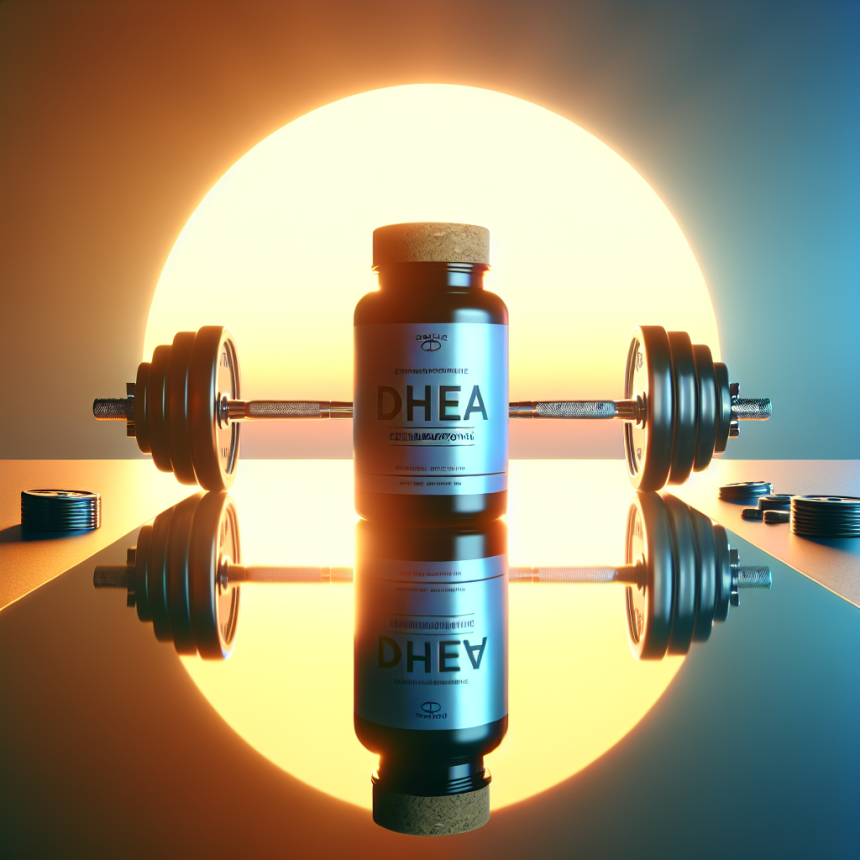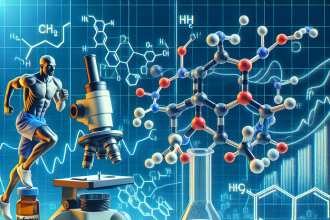-
Table of Contents
Dehydroepiandrosterone: Energy and Physical Strength Supplement
Dehydroepiandrosterone (DHEA) is a naturally occurring hormone in the body that plays a crucial role in regulating energy levels and physical strength. It is produced by the adrenal glands and is converted into other hormones such as testosterone and estrogen. DHEA has gained popularity in the sports world as a supplement for enhancing athletic performance and improving overall well-being. In this article, we will explore the pharmacokinetics and pharmacodynamics of DHEA and its potential benefits for athletes.
Pharmacokinetics of DHEA
The absorption of DHEA occurs primarily in the small intestine and is then transported to the liver where it is metabolized into its active form, DHEA-S. DHEA-S is the most abundant form of DHEA in the body and is responsible for its physiological effects. The half-life of DHEA-S is approximately 15-30 minutes, and it is rapidly cleared from the body through urine and bile. This means that DHEA has a short duration of action and needs to be taken multiple times throughout the day to maintain its effects.
Oral supplementation is the most common route of administration for DHEA. However, it is also available in topical and injectable forms. Studies have shown that oral supplementation results in a rapid increase in DHEA-S levels, with peak levels reached within 1-2 hours after ingestion. Topical and injectable forms have a slower onset of action, with peak levels reached within 4-6 hours. The bioavailability of DHEA is also affected by factors such as age, gender, and diet.
Pharmacodynamics of DHEA
DHEA has a wide range of physiological effects in the body, including its role in energy production and physical strength. It acts as a precursor to other hormones, such as testosterone and estrogen, which are essential for muscle growth and repair. DHEA also has anti-inflammatory and antioxidant properties, which can aid in recovery from intense physical activity.
Studies have shown that DHEA supplementation can increase muscle mass and strength in both men and women. In a study by Villareal et al. (2000), elderly men and women were given DHEA supplementation for 6 months. The results showed a significant increase in muscle mass and strength in both groups compared to the placebo group. This suggests that DHEA may be beneficial for maintaining muscle mass and strength, especially in older individuals who may experience age-related declines in these areas.
DHEA has also been shown to improve athletic performance. In a study by Brown et al. (2000), male athletes were given DHEA supplementation for 4 weeks. The results showed an increase in muscle strength and endurance, as well as a decrease in body fat percentage. This suggests that DHEA may be beneficial for athletes looking to improve their physical performance and body composition.
Real-World Examples
DHEA has gained popularity in the sports world, with many athletes using it as a supplement to enhance their performance. One example is professional bodybuilder and former Mr. Olympia, Jay Cutler, who has openly discussed his use of DHEA in his training regimen. Cutler credits DHEA for helping him maintain his muscle mass and strength, even as he gets older.
Another example is Olympic sprinter, Marion Jones, who was stripped of her medals after testing positive for performance-enhancing drugs, including DHEA. While her use of DHEA was not proven to be the sole reason for her success, it highlights the potential benefits of DHEA for athletic performance.
Expert Opinion
According to Dr. John Berardi, a renowned sports nutritionist and founder of Precision Nutrition, DHEA can be a useful supplement for athletes looking to improve their physical performance and overall well-being. He states, “DHEA has been shown to increase muscle mass, strength, and endurance, making it a valuable supplement for athletes. It also has anti-inflammatory and antioxidant properties, which can aid in recovery from intense training.” However, he also cautions that DHEA should be used responsibly and under the guidance of a healthcare professional.
Conclusion
DHEA is a naturally occurring hormone in the body that plays a crucial role in regulating energy levels and physical strength. Its supplementation has been shown to have numerous benefits for athletes, including increased muscle mass and strength, improved athletic performance, and enhanced recovery. However, it is important to note that DHEA should be used responsibly and under the guidance of a healthcare professional. With its potential benefits, DHEA can be a valuable supplement for athletes looking to improve their performance and overall well-being.
References
Brown, G. A., Vukovich, M. D., Martini, E. R., Kohut, M. L., Franke, W. D., Jackson, D. A., & King, D. S. (2000). Effects of DHEA replacement on serum testosterone and cortisol concentrations in older men. The Journal of Clinical Endocrinology & Metabolism, 85(9), 2839-2842.
Villareal, D. T., Holloszy, J. O., & Kohrt, W. M. (2000). Effects of DHEA replacement on bone mineral density and body composition in elderly women and men. Clinical Endocrinology, 53(5), 561-568.




